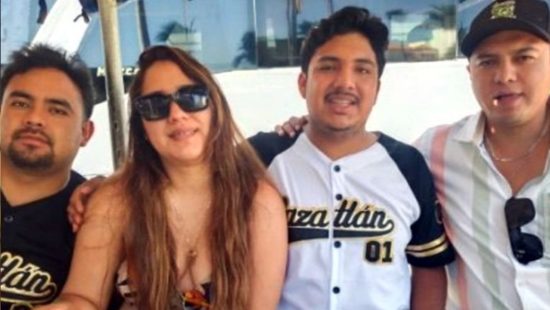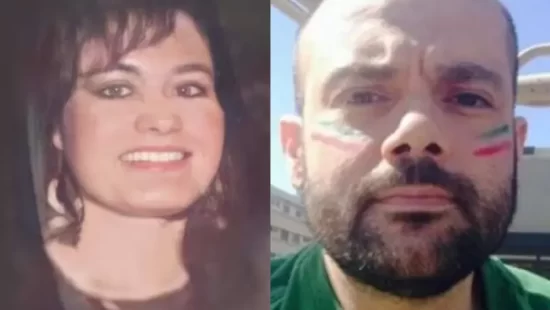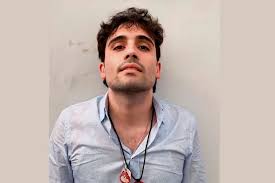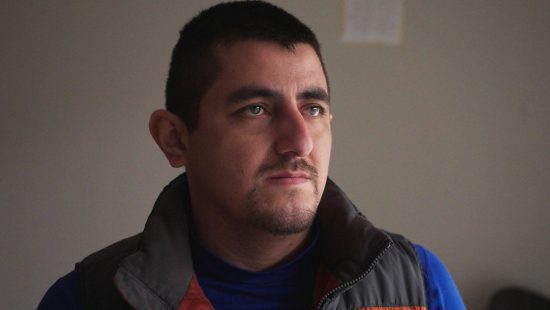Tim is eyeing a career change. The 26-year-old has a full-time job with the Department of Veterans Affairs in Salt Lake City, but the pay isn’t enough. He recently spent a lot of money helping his husband, a Peruvian immigrant, settle in the U.S., so he’s looking for a higher salary.
“We worked hard to get him here. It was expensive to go through the process,” he told The Intercept. “I want to do something to educate and help the process go more smoothly for other people.”
That’s what brought him to the Department of Homeland Security’s Career Expo in Provo, Utah, five days after the shooting of conservative influencer Charlie Kirk, where the Trump administration was seeking new recruits for its anti-immigrant campaign.
Tim knows that federal agents are responsible for separating families under Donald Trump’s aggressive deportation push. But he thinks that’s a risk immigrants knowingly take living in the U.S. “You want to come here for a better life, but you gotta do it the hard way,” he said before submitting an application to join U.S. Customs and Border Protection.
At the Utah Valley Convention Center, hundreds of people like Tim stood in the sun, many in suits with briefcases and resumes at the ready. The biggest line was for the Immigration and Customs Enforcement booth; a smaller queue led to the CBP stall next door. Recruiters strolled by the applicants, asking if anyone was a lawyer or had tentative offers, and plucking them out of line. If your resume was selected, you might hear back within the hour for interviews, fingerprints, and a drug test.
To understand the motivation of those seeking to join the Trump administration’s violent anti-immigrant campaign. Prospects ran the gamut from college students seeking debt relief to those parroting white nationalist talking points. Many supported the administration’s hard-line approach to immigration, or were convinced that whatever ethical quibbles they might have with current immigration enforcement could be separated from the job itself. Most job-seekers agreed to speak on the condition that only their first name would be published.
Among those seeking DHS jobs, many had backgrounds in law enforcement or the military. Nick, a former Marines Corps reserve officer and current Florida state policeman, came to the fair on the recommendation of friends who work in ICE detention centers.
“I want to say it’s in my blood,” he said, between sips of his protein shake. “It’s what I want to do. I want to help people, want to defend the country.” The child of a Peruvian immigrant, Nick said he learned early the importance of being frugal and avoiding debt. He voted for Trump because he is convinced the president runs good businesses.
Taking an ICE job would result in a pay cut of more than $30,000, but he believes it would free him from the mundane desk duty of his police job.
“I’ve gotten to a point in my career where I’m not going to be doing anything new or going anywhere. I’m kind of stuck in an office,” Nick said. “I need something different.”
“I just feel like right now that there needs to be people like me,” said Thomas, who previously worked for a decade as a special education teacher serving mostly Latino students. “A little older and have seen a little bit more situations over the years.”
At a time when federal agents are regularly documented using violence against immigrants and even U.S. citizens, Thomas feels that he can make enforcement less confrontational.
“There are a lot of great people out there that are working hard and don’t need this, but we got to get it the right way. We get them documented, get in the right way, and keep them here,” he said.
Other applicants cared less about process and more about forging an America with fewer immigrants.
“Americans are getting pushed out of jobs because of all this stuff. The cities, they’re even flooding smaller towns trying to take jobs there,” said Peter Neugebauer, 34. As an independent contractor in Arkansas, however, he said he mostly works with “European Americans.” Joining ICE, he said, would enable him to truly serve American interests.
Neugebauer’s politics shifted dramatically five years ago while attending college in Humboldt County, California. He said his worldview switched when he saw people “acting crazy” in protests over the police killing of George Floyd. He changed his friend groups, connecting with them via Telegram. There were fewer arguments when they hung out, since their beliefs were aligned.








